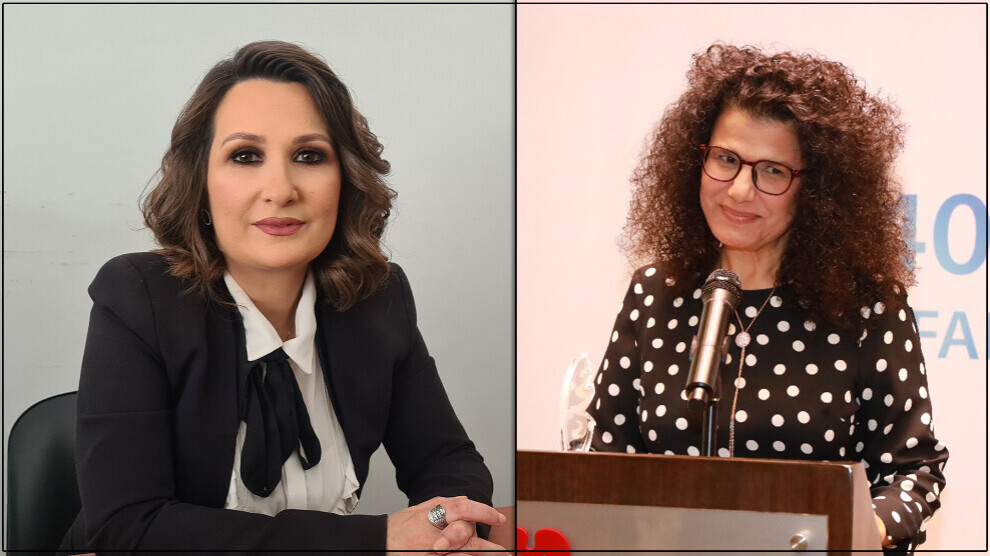Economic crisis threatens Lebanese people's welfare
More than half of Lebanese citizens live below the poverty line, resulting in a wretched economic reality that has had a significant impact on Lebanese families.

CAROLİNE BAZZİ
Beirut - The impacts of the dollar's rise and fall have damaged the lives of the Lebanese, who live in terror of price hikes with each worsening in the exchange rate of the Lebanese pound. Traders swarm to it, hoping to benefit from each spike. Prices grow as a result of a lack of monitoring, reducing citizens' purchasing power.
We discuss the reality of the economic crisis and the reasons for the dollar's significant rise and fall, as well as the government's approved economic recovery plan, with journalist Salwa Baalbaki, editor-in-chief of the Eco Watan website, and economist Rima Khaddaj Hamadeh.
Passing the elections
Salwa Baalbaki, an economics journalist, looks back to the beginning of Lebanon's economic crisis. "Lebanon has seen a bleak economic reality and many sectoral breakdowns since the October 17, 2019 revolution, most notably the banking industry, which has been beset by liquidity and solvency concerns (ability to pay), which reflect depositors' trust in it.
“One of the most serious consequences of the crisis has been the continuing depreciation of the Lebanese pound against the US dollar, which has been reflected in employee pay, particularly those paid in the national currency, which has lost value against the US dollar exchange rate. After the dollar was worth 1500 pounds, it is now worth 30 thousand pounds, resulting in an incredible rise in the price of products in tandem with the collapse of the citizen's buying power,” she told NuJINHA.
People are panicked by the dollar’s rise
"The dollar exchange rate stabilized at 22,000 pounds shortly before the elections," she said, "In light of a known and undeclared political agreement between the triumvirate of government, and the Bank of Lebanon, succeeded in temporarily stabilizing the exchange rate, but as the election process ended, the dollar began to activate upwards, as many experts and observers predicted, and broke free from the grip of the "exchange" platform, whose performance and financing declined, while banks began to legalize withdrawals for their customers in dollars, confusing them. People became panicked as a result of the market, forcing the dollar to surge over 35 percent in the previous two weeks.”
"More than 30% of children are undernourished."
"The crisis has profoundly affected Lebanese families, as more than half of the Lebanese live below the poverty line, leading people to market their clothes and valuables on social media to buy milk cartons and diaper bags for their children. In Lebanon, more than 30% of children are undernourished," she said.
Many families can no longer afford a living
According to a recent assessment conducted by UNICEF in 2021, the unprecedented crisis leaves a profound impact on children in Lebanon. Over 30 percent of children went to bed hungry and skipped meals because seventy-seven per cent of households do not have enough food or enough money to buy food.
The dollar and its many forms
The economist Rima Khaddaj Hamadeh, the editor-in-chief of Eco Watan, believes that the Banque du Liban has play a major role in the issue of manipulating the dollar exchange rate because it does not play the role of an observer, knowing that it is an organization that must contribute to the dollar's stability. However, in Lebanon, there is a political dollar that is controlled by the government. We witnessed stability in the dollar exchange rate prior to the elections, and the dollar exchange rate jumped shortly following the elections.
"Before the election of the Speaker of the House of Representatives, and the Council of Representatives, the dollar plummeted by around ten thousand pounds in one night, reaching 38 thousand pounds at its maximum price, then falling on the same day to around 28 thousand pounds," she noted.
According to Rima, aside from the political dollar, there is the black market dollar or the speculative dollar, which is controlled by applications causing the currency's biggest actual manipulation.
“The economic dollar is also manipulated by dealers who sell dollars at a high dollar exchange rate even if it falls. When the dollar exchange rate increases to around 35,000, retailers sell dollars at this price or at forty thousand dollars, and no one commits to lowering the dollar," she added.
"Women in Lebanon are administrators”
Rima Khaddaj portrays women, particularly Lebanese women, as the administrative women, who decide the family budget, and provide for the needs of the house with the lowest possible pay. She is now more productive in all disciplines and capable of adapting to all levels and crises.
